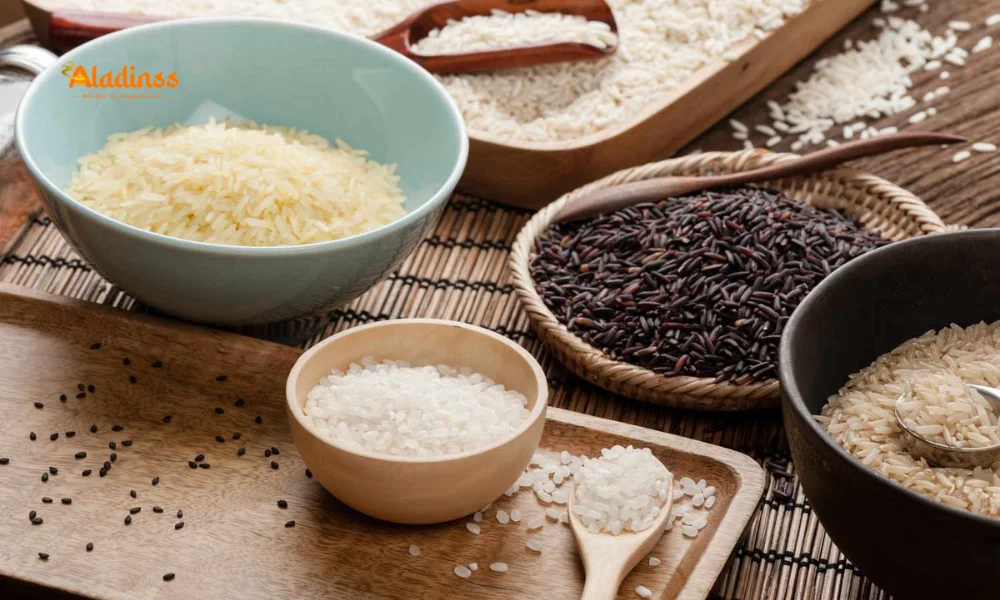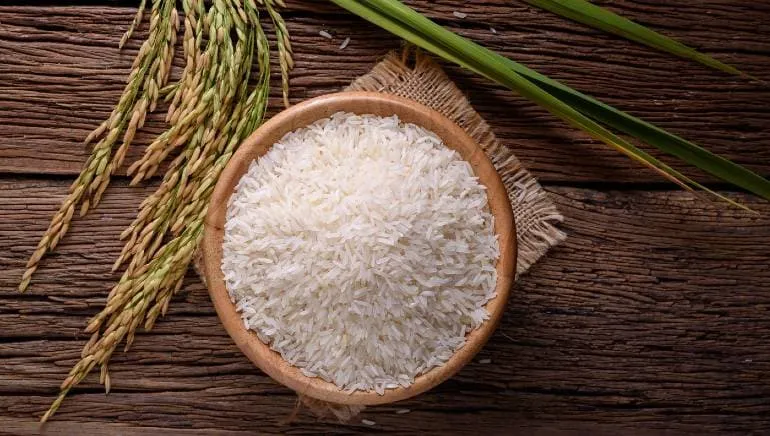White Rice and Coffee: Gut Health Myths Debunked by Expert

White Rice and Coffee: Gut Health Myths Debunked by Expert
In the quest for better health and weight management, many people make assumptions about everyday foods like white rice and coffee. Some avoid rice, believing it leads to weight gain, while others rely heavily on coffee, assuming it’s a health elixir. However, these generalizations can be misleading. Dr. Saurabh Sethi, a renowned gastroenterologist trained at Harvard and Stanford, has shared science-backed insights on Instagram about how common foods like rice, coffee, bananas, and spices impact gut health. This article dives into his expert advice, debunking myths and offering practical tips for optimizing digestion and overall wellness through mindful food choices.
The Truth About White Rice and Gut Health
White rice has long been vilified, especially among those aiming to lose weight, due to its high carbohydrate content and perceived lack of nutritional value. However, Dr. Sethi challenges this notion, explaining that white rice, when prepared and consumed correctly, can actually support gut health. “When cooled after cooking, white rice forms resistant starch, which acts like dietary fiber and supports your gut microbiota,” he notes. This resistant starch feeds beneficial gut bacteria, promoting smoother digestion and reducing the risk of blood sugar spikes.
To maximize the benefits of white rice, Dr. Sethi recommends cooling it in the refrigerator for several hours or overnight before reheating. This process, often seen with leftover rice, enhances its gut-friendly properties. Pairing rice with fiber-rich vegetables and lean proteins can further balance the meal, making it a nutritious option rather than a dietary foe. By rethinking how we prepare and consume white rice, we can incorporate it into a healthy diet without guilt.
Coffee: A Double-Edged Sword for Gut Health
For many, coffee is a morning ritual that provides a much-needed energy boost. Beyond its stimulating effects, coffee can support gut health by promoting bowel regularity and feeding beneficial microbes. Dr. Sethi explains that coffee enhances gut motility, helping to prevent constipation and maintain a healthy microbiome. However, moderation is key. “Drinking too much coffee or consuming it on an empty stomach can trigger acidity, reflux, anxiety, or loose stools,” he warns.
To enjoy coffee’s benefits without the drawbacks, limit intake to one or two cups daily and avoid drinking it first thing in the morning on an empty stomach. Pairing coffee with a balanced breakfast can reduce its potential to irritate the stomach lining. For those sensitive to caffeine, decaffeinated coffee can still offer gut health benefits without the risk of overstimulation, making it a viable alternative for daily consumption.
Bananas: Timing Matters for Gut Benefits
Bananas are a popular snack, but their ripeness can significantly impact their health benefits. Dr. Sethi advises consuming bananas when they are slightly green, as they contain higher levels of resistant starch, a prebiotic that nourishes beneficial gut bacteria without causing blood sugar spikes. “When bananas turn brown and soft, most of the starch converts to sugar, reducing their gut-friendly properties,” he explains.
Incorporating slightly green bananas into your diet can support digestion and promote a balanced gut microbiome. Try adding them to smoothies, oatmeal, or eating them as a snack with nut butter to enhance satiety. For those managing diabetes or watching their sugar intake, choosing underripe bananas can be a simple yet effective way to enjoy this fruit while supporting gut health.
Spices: Nature’s Medicine for Gut Health
Spices are often viewed as mere flavor enhancers, but Dr. Sethi highlights their therapeutic potential. Turmeric, ginger, and fennel, in particular, offer anti-inflammatory properties that protect the gut lining and support digestion. “I take all three daily,” Dr. Sethi shares, emphasizing their role in maintaining a healthy digestive system. Turmeric’s active compound, curcumin, reduces inflammation, while ginger soothes the stomach and fennel aids in relieving bloating.
To incorporate these spices, try adding a pinch of turmeric to soups or smoothies, brewing ginger tea, or chewing fennel seeds after meals. Combining turmeric with black pepper enhances its bioavailability, making it even more effective. These simple additions can transform everyday meals into gut-healing powerhouses without requiring expensive supplements.
Plain Yogurt vs. Probiotic Drinks
The market is flooded with probiotic drinks promising to boost gut health, but Dr. Sethi argues that plain yogurt and other naturally fermented foods are far superior. “Real fermented foods like plain yogurt, kefir, or sauerkraut offer diverse strains of probiotics without the added sugars that feed bad bacteria,” he explains. These foods provide a wider range of beneficial microbes, supporting a balanced gut microbiome and improving digestion.
When choosing yogurt, opt for unsweetened, plain varieties to avoid added sugars that can negate health benefits. Adding fresh fruits or a drizzle of honey can enhance flavor without compromising gut health. Incorporating fermented foods into daily meals, such as yogurt with breakfast or sauerkraut as a side, can provide a cost-effective and natural way to support digestion.

Berries: Gut Gold for Reduced Stress
Berries, such as blueberries, raspberries, and pomegranates, are powerhouse foods for gut health. Dr. Sethi notes that these fruits are rich in antioxidants that combat oxidative stress and nourish beneficial gut bacteria. “Berries can outperform many probiotic supplements,” he says, highlighting their ability to reduce inflammation and support a healthy microbiome. Regular consumption of berries can also lower the risk of chronic diseases like heart disease and diabetes.
Add berries to your diet by including them in smoothies, yogurt, or as a standalone snack. Frozen berries are a convenient and equally nutritious option, making it easy to enjoy their benefits year-round. Their natural sweetness satisfies cravings while delivering gut-friendly nutrients, making them an ideal addition to any diet.
Seeds: A Simple Fiber Boost
Fiber is a cornerstone of digestive health, and seeds like chia and sabja (basil seeds) are excellent sources. Dr. Sethi explains, “These seeds absorb water, form a gel in your intestines, and help keep digestion smooth.” This gel-like consistency promotes regular bowel movements, reduces bloating, and supports the growth of beneficial gut bacteria. Just one tablespoon of these seeds daily can significantly enhance digestive health.
Incorporate chia or sabja seeds into smoothies, yogurt, or water for an easy fiber boost. Soaking them for 10-15 minutes before consumption ensures they form the digestible gel that Dr. Sethi recommends. This simple habit can improve regularity and contribute to a healthier gut microbiome over time.
Lifestyle Habits for Optimal Gut Health
Beyond food choices, Dr. Sethi emphasizes that lifestyle habits play a critical role in digestive health. Eating too quickly, chronic stress, or irregular routines can disrupt the gut-brain axis, leading to bloating, discomfort, and an imbalanced microbiome. “Your gut thrives on rhythm, not chaos,” he says, advocating for consistent meal times, adequate sleep, and stress management to support digestion.
To optimize gut health, practice mindful eating by chewing slowly and avoiding distractions during meals. Establishing a regular sleep schedule and incorporating stress-reducing activities, such as meditation or yoga, can further enhance digestive function. By combining these habits with Dr. Sethi’s food recommendations, you can create a holistic approach to gut health that promotes long-term wellness.
Practical Tips for Implementing Dr. Sethi’s Advice
Dr. Sethi’s insights highlight the importance of mindful consumption and preparation of everyday foods. To put his advice into practice, start by assessing your current diet and making small adjustments. For example, store cooked rice in the refrigerator to develop resistant starch, choose slightly green bananas, and incorporate plain yogurt into your meals. Experiment with spices like turmeric and ginger in your cooking to harness their anti-inflammatory benefits.
Additionally, prioritize a consistent routine to support your gut’s natural rhythm. Plan meals ahead of time, ensure adequate hydration, and limit processed foods high in sugar or artificial additives. By making these changes, you can transform your diet into a powerful tool for improving digestion and overall health, all while enjoying the foods you love.
Comment / Reply From
No comments yet. Be the first to comment!






